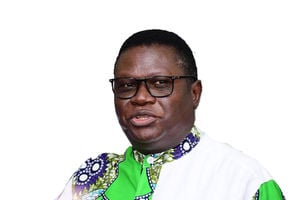Entitlement: “Where were you when we were fighting for this country?”

What you need to know:
- The sense of entitlement that allows some to walk away with billions of shillings while millions suffer in silence is a clear betrayal of the public trust. It is a stark reminder that, in Uganda, public service is often more about self-service.
In a nation struggling to rise above the grips of corruption, mismanagement, and social inequality, Uganda finds itself at a critical crossroads. The persistent mentality of self-entitlement, where certain individuals regard themselves as primary citizens and others as mere secondary citizens, is eating away at the moral fabric of our society. This dangerous mindset, which allows the privileged few to exploit public resources at the expense of the majority, has reached alarming levels and must be confronted if we are to foster a nation where everyone has the opportunity to thrive.
A former Minister of Health once infamously retorted to a judge, “Where were you when we were fighting for this country?” as if their past contributions to the nation somehow justify present-day acts of corruption. Such statements reflect a deep-seated belief that past sacrifices grant a lifetime licence to plunder public resources—a fallacy that has no place in a civilised society.
Corruption in Uganda has a human face. It manifests in dilapidated hospitals, underfunded schools, and crumbling infrastructure. The diversion of public funds directly affects the quality of life for millions of citizens, particularly the most vulnerable. In a country where the healthcare system is under constant strain, and where rural communities often lack access to basic medical services, the misuse of funds that could otherwise be invested in public health is a matter of life and death.
The sense of entitlement that allows some to walk away with billions of shillings while millions suffer in silence is a clear betrayal of the public trust. It is a stark reminder that, in Uganda, public service is often more about self-service.
While enforcing the law is crucial for environmental sustainability, it is disheartening to witness the stark contrast in how these laws are applied.
For those in positions of power or with the right connections, wetlands are not barriers but opportunities. Expensive hotels, lavish mansions, and commercial enterprises spring up in these protected areas with impunity. Meanwhile, the poor and powerless bear the full brunt of enforcement actions, their modest homes bulldozed in the name of environmental preservation. The selective application of the law serves to reinforce the perception that there are two Ugandas—one for the privileged and one for everyone else.
This hypocrisy undermines public confidence in state institutions.
Uganda’s journey toward a fair and just society requires a radical shift in mindset. The culture of self-entitlement must be replaced with a culture of accountability, transparency, and respect for the rule of law. It begins with recognising that public office is a privilege, not a right, and that those who hold such positions are stewards of the public’s trust.
To break the cycle of corruption, Ugandans must demand more from their leaders. The Latin maxim Quis custodiet ipsos custodes?—Who will guard the guards themselves?—captures the essence of the challenge we face. A robust system of checks and balances is essential to prevent those in power from abusing their positions. Civil society, the media, and ordinary citizens must hold leaders accountable, ensuring that no one is above the law.
The Judiciary, too, has a crucial role to play. Courts must administer justice impartially, without fear or favour, and send a clear message that corruption will not be tolerated. The notion that one’s past contributions to the country provide a licence to loot must be dispelled once and for all. Judges must have the courage to confront the powerful and uphold the principle of equality before the law.
The task of dismantling the mentality of self-entitlement is not easy, but it is necessary if Uganda is to move forward as a nation. It requires a collective effort from all sectors of society, from policymakers and public servants to ordinary citizens who refuse to remain silent in the face of injustice.
The transformation of Uganda into a country where everyone can thrive—regardless of their background, connections, or status—will only be possible when we confront the pervasive culture of impunity.
As Ugandans, we must reclaim our voice and demand better. We must build a nation where public resources are used for the public good, where justice is truly blind, and where the dreams of millions are not sacrificed on the altar of greed.
Onyang Opio, [email protected]




